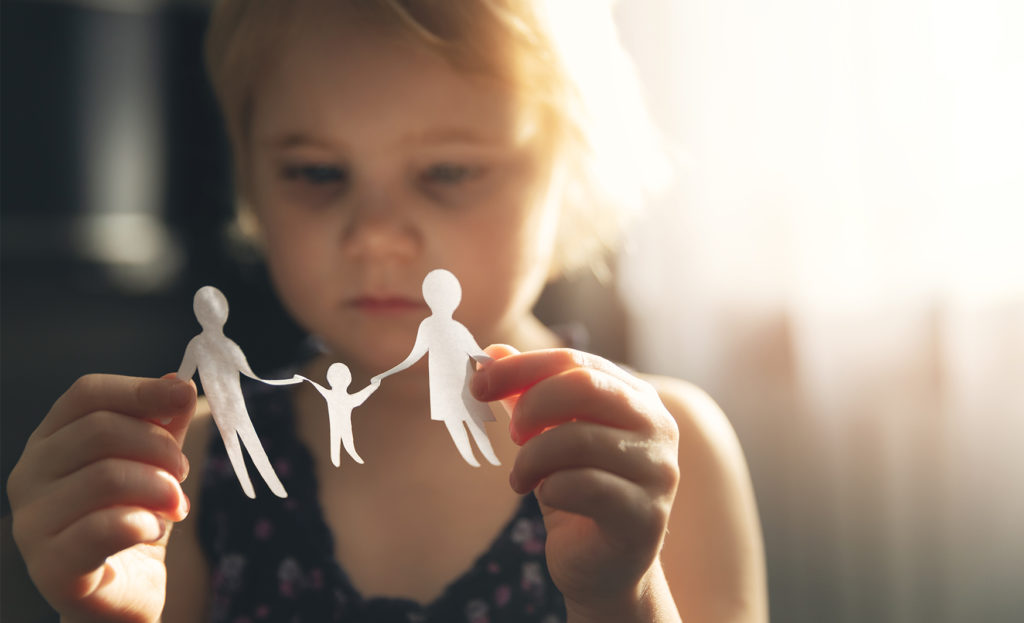Counselling
Counselling adults, young people, kids in Brisbane
At LifeCare, we provide professional counselling support and a range of counselling services to adults, young people, children and their families in the Brisbane area.
Counselling involves sitting with a counsellor for 1 hour to discuss your situation in a safe and supportive environment. Counselling provides a therapeutic relationship between a client and a qualified counsellor. As in any new relationship, it involves a ‘getting-to-know you’ period, and it is important that you feel comfortable with the counsellor’s way of working.
Counselling is both professional and intentional. In difficult circumstances, friends and family are sometimes unable to provide an objective viewpoint. A counsellor can offer this objectivity so that you gain insight and learn strategies to assist in managing your situation.
For more details of our counselling services please see below.
Counselling Adults, Young people & Kids
LifeCare offers counselling to people of all ages. The process and delivery is individualised. This means that adults searching for say, clarity around their journey in life, will receive counselling focused on exploration and finding direction whereas an individual who is struggling with a recent relationship breakdown will engage in counselling that addresses the myriad losses involved in that challenge. The strategies and models utilised will vary from client to client and issue to issue.
LifeCare counsellors are familiar with several evidence-based models including Personal-centred therapy, Solution-Focused therapy, Family Systems therapy, Cognitive Behavioural therapy, Narrative Therapy, Acceptance and Commitment therapy, Trauma-focused therapy and Motivational Interviewing.
It is critical that counselling is underpinned by a strong awareness of the developmental stage of the client. Young people and children process their concerns differently to mature adults. The counselling they engage in must be sensitive to this. Play therapy, bibliotherapy, therapeutic games and psycho-education are all strategies that might be utilised when working with young people.
Common issues we can help with
At LifeCare we can successfully assist your child or adolescent with issues relating to…
Divorce/separation | Parents/boundaries | Separation anxiety | Abuse (sexual, physical, emotional) | Fears/phobias | Self-esteem | Bullying | Transitions (school, home) | Grief and loss | Friendships | School issues | Disabilities |
Relationship Counselling
Relationship counselling is appropriate for anyone seeking to improve their relationships with others, or for those coming to terms with the end of a relationship.
Relationship counselling assists couples to address challenges in their relationship. Couples can attend together and the LifeCare counsellor will assist in the expression of their difficulties, providing guidance in learning how to recognise the feelings behind the words/actions and discover a more positive way of being in the relationship. You will reach new levels of closeness, confidence, security and satisfaction.
Contrary to popular belief, relationship counselling is not just for couples, and is also suitable for people who are single and who want to move into a loving, functional and mutually rewarding relationship. Sometimes relationships come to an end. The LifeCare counsellor can assist you to manage this difficult experience.
Common issues we can help with
Conflict resolution | Creative problem solving | Interpersonal communication | Intimacy/creating love and affection | Sexuality | Anxiety and depression | Trust and infidelity | Power and control | Managing grief and loss/anger | Deciding to stay or leave | Trauma | Addiction | Work-home life balance |
Grief & Loss
Loss can be loss of hope for the future as well as loss in the past. Loss may also include loss of a way of life, person, relationship, partner, home, job, or loss through illness. Grief is the emotional, physical and behavioural reaction to loss and is an entirely unique experience for each individual.
There is no ‘right’ or ‘wrong’ way to grieve, but our LifeCare Counsellors can assist you to learn safe and effective ways of processing your grief and finding new ways to incorporate your loss in your life.
Common issues we can help with
Support is available for loss associated with: Divorce/separation | Death | Reproductive loss | Transitions: such as moving house/country, changing jobs or children leaving home | Friendships |
Meet the Counsellors at LifeCare
MEET THE DIRECTOR OF LIFECARE CONSULTANCY, SUSAN DE CAMPO
Susan is the Director and founder of LifeCare Consultancy. With almost thirty years’ experience in private practice as a Registered Clinical Counsellor she has developed expertise in a variety of areas including working with children, young people and families, loss and grief, and post-separation parenting dynamics. This extensive clinical experience informs her work, for the past twenty years, as a sessional academic at several Queensland universities.
As an ethics panel member and accredited supervisor with PACFA Susan provides professional supervision to practitioners in private practice and employed by larger organisations. She is passionate about this work and also enjoys mentoring other supervisors.
Susan is currently completing a Professional Doctorate exploring reunification therapy in the Australian Family Law. Her future publication will identify factors influencing outcomes.
Outside of work, you can find Susan spending time with her grandchildren, watching makeover shows and volunteering with TFLP.
** Private Health rebates may be available.
Qualifications & Professional Memberships:
- Master of Health Studies (Loss & Grief)
- Graduate Certificate in Autism Studies
- Bachelor of Arts
- Bachelor of Counselling
- Clinical Counsellor membership with the Psychotherapy and Counselling Federation Australia (PACFA)
- Registered with the Australian Register of Counselling and Psychotherapists (ARCAP)
- Clinical member: Australasian Association of Supervisors
- Founding Board Member: The Association of Therapeutic Family Law Professionals (TFLP)
Availability at LifeCare: Monday – Saturday from 9:00am – 7:00pm.
If you wish to make an appointment, please contact LifeCare directly:
- E: administration@lifecareconsultancy.com
- P: 07 3397 9665
Meet Ian Polglase – Registered Psychologist
With over 20 years experience, Psychologist Ian Polglase is based at LifeCare and offers specialist interventions for men’s behaviour change, including anger management, conflict, trauma, anxiety and depression. His therapeutic work is individually tailored to focus on a client’s specific challenges, in addition to targeted interventions relating to clients involved in criminal (parole/probation) or family court proceedings. Ian is also committed to education and training for professionals who may be seeking support and guidance in the domestic violence space.
Outside of work, you can find Ian spending time with his family and friends. He particularly enjoys AFL and traveling to new destinations.
Ian’s particular areas of interest include: Mental Health, Trauma, Domestic Violence Counselling and Family Well-being. Ian is also a Registered Provider for the National Disability Insurance Scheme (NDIS).
** Bulk Billing available for some services.
Qualifications & Professional Memberships:
- Bachelor of Psychology
- Post Graduate Degree of Psychology
- Diploma of Sports Psychology
- Level 3 Facilitator Disrupting Family Violence
- Level 3 Facilitator Family Peace Initiative (Kansas, USA)
- Level 3 Facilitator Responsible Men’s Behaviour Change Program
- Accredited Life Coach
- Membership AHPRA (Australian Health Practitioner Regulation Agency)
- Australian Psychology Board Registration No: 1051178
- Full Membership of Services and Practitioners for the Elimination of Abuse in Queensland (S.P.E.A.Q).
Availability at LifeCare: Monday and Tuesday from 9:00am – 5:00pm.
If you wish to make an appointment, please contact Ian directly:
- E: ikpolglase@bigpond.com
- P: 0422 447 623
Meet Jude Tapp – Family Law Therapeutic Specialist
Jude is the head of LifeCare’s Children’s Contact Service (CCS) therapeutic team, providing a range of family and post-separation parenting support and counselling for complex family law matters. Jude has a wealth of over 30 years’ experience working with families, young adults and parents alike in a variety of formats. Prior to completing her Master of Counselling, Jude was a high school teacher for over two decades with experience in the public, private and alternative education domains working closely with young adults facing a variety of mental health challenges.
Underpinned by formal education and extensive experience, Jude’s proficiency in the therapeutic space presides in adolescents and young children. As a mother of two young adult children Jude has insight and experience in navigating parenthood in the modern age and likens raising children in contemporary times to ‘clutching desperately to the rear of a fast-moving bus without any navigation tools in sight’!! Jude describes parenthood as the most ‘rewarding but relentless unpaid work you will ever do’.
Jude enjoys running, yoga, and quality time with her family and two dogs in her spare time.
** Private health available for some services.
Qualifications & Professional Memberships:
- Bachelor of Education, majoring in English & Physical Education
- Masters of Counselling
- Diploma of Teaching
- Clinical Counsellor membership with the Australian Counsellor’s Association (ACA)
- Member: The Association of Therapeutic Family Law Professionals (TFLP)
Availability at LifeCare: Wednesday and Thursday 9:00am – 5:00pm. Available other times by appointment only.
If you wish to make an appointment, please contact Jude directly:
P: 0403 058 132
Meet Peter Avetisoff – NOETIC THERAPEUTIC SERVICES PTY LTD
Peter brings an authentic, warm and attentive disposition with him, and aspires to ensure his clients feel safe, seen, heard and validated. He is a passionate counsellor and family therapist and has been practicing for the last six years within both government and non-government settings. He enjoys working with individuals and families and has a particular interest in relationship therapy. Peter has experience in various areas of counselling, including Family Therapy, Domestic and Family Violence, Child and Youth and Student Counselling.
When he’s not working, you can find Peter spending quality time with family, gardening, and playing soccer with his son. Peter enjoys connecting with nature and uses early morning walks to find peace and attend to his own self-care.
** Private health available for some services.
Qualifications & Professional Memberships:
- Bachelor of Counselling, majoring in Psychology (BCouns).
- Masters of Counselling Advanced Practice stream – Specialisation in Child Youth and Family, and Mental Health Counselling (MCouns).
- Clinical Counsellor membership with the Psychotherapy and Counselling Federation Australia (PACFA) and registered with the Australian Register of Counselling and Psychotherapists (ARCAP).
- Claimable Private Health Funds – BUPA, Medibank, ARHG, HCF
Availability at LifeCare: Currently limited to weekends and Wednesday nights.
If you wish to make an appointment, please contact Peter directly:
E: Peter.avetisoff@hotmail.com
P: 0490 061 967
Meet Hester Van der Elst – Accredited Social Worker, Family Therapist, Family Report Writer
Hester brings an authentic, compassionate and insightful disposition with her, allowing her clients to feel safe enough to face and work with their painful realities, and connect with their hidden strengths and creativity when it comes to addressing their challenges. She is a sought-after family therapist and family report writer for separated families. Hester has been in private practice for the last six years. She enjoys working with individuals and families and has a particular interest in child-parent dynamics.
Hester has prior experience in the non-government sector as crisis line first responder for Queensland-based doctors and medical students, as clients. This role involved wrap-around case management related to mental health first aid, suicide prevention, domestic and family violence, income support and advocacy.
When she is not working, you can find Hester chipping away at a PhD, spending quality time with her children and nephews, reading “everything”, and dabbling in painting.
Qualifications, Significant CPD & Professional Memberships:
- Bachelor of Arts, Honours in Psychology – BA(Hons)Psych
- Master of Social Work Studies (Qualifying) – MSocWkSt
- Graduate Diploma: Family Dispute Resolution Practice – GradDip (FDRP)
- Advanced certification as Acceptance & Commitment Therapist (ACT)
- Circle of Security Parenting (COSP) Facilitator
- New Ways for Families™ Counsellor
- Accredited Member of the Australian Association of Social Workers (AASW)
- Member of:
- Therapeutic Family Law Practitioners (TFLP)
- Family Law Practitioners Association (FLPA)
- Child Protection Practitioners Association of Queensland (CPPAQ)
Availability at LifeCare: Weekdays, by appointment only. In-person & telehealth options.
If you wish to make an appointment, please contact Hester directly:
E: info@postseparationfamilyservices.com.au
P: 0411 491 262
Meet Kirsty Wetmore – Clinical Supervisor
Kirsty is a warm, down-to-earth therapist with a genuine love of connection and a readiness to gently challenge when it matters. With over 17 years’ experience working in not-for-profit settings, she has supported individuals, young people, and families across a wide range of life experiences, including addiction and substance use, family therapy, child and youth counselling, transitional life challenges, and grief and loss. More recently, her work has focused on walking alongside young people and families navigating the complexities of a cancer diagnosis.
Alongside her clinical work, Kirsty has extensive experience mentoring and supporting junior therapists. This role has been a deeply valued part of her professional journey and underpins her work as a Clinical Supervisor. She brings a thoughtful, collaborative, and reflective approach to supervision, supporting therapists to grow in confidence and skill while remaining grounded in ethical and relational practice.
Kirsty has a particular passion for family therapy and grief and loss, and these interests continue to shape her professional direction. She is currently deepening her expertise through further study in mediation and family separation, with a strong focus on supporting families through periods of change with clarity, compassion, and care. Her therapeutic style balances warmth and humour with honesty and depth, creating a space where clients feel safe and supported to explore meaningful change.
Outside of the therapy room, Kirsty can usually be found spending time with her three dogs, practising yoga, performing dance, or getting lost in a good book — all things that keep her grounded, curious, and connected.
Qualifications & Professional Memberships
- Master of Counselling (Advanced Practice)
- Bachelor of Counselling
- Diploma of Community Services
- Registered Clinical Supervisor (Australian Association of Supervision)
- Registered Counsellor (Australian Counselling Association – Level 4)
If you wish to make an appointment, please contact Kirsty directly:
E: somersetfamilytherapist@gmail.
P: 0432 898 440
Life caring thoughts
With over four decades working in the helping professions, in a range of contexts associated with psychological wellbeing, it is not surprising that Susan is frequently asked by colleagues, students, supervisees and clients to share her insights and knowledge in a more accessible way. So, here it is. This blog will provide regular commentary on various aspects of Susan’s work.



